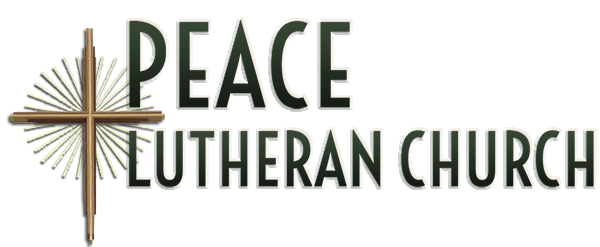Luke 13:1-9
Asked about current tragic events, Jesus turns a lesson about whether suffering is deserved into a hard call to obedience. He then tells a parable that holds out hope that the timeline for ultimate judgment will be tempered by patience.
1At that very time there were some present who told him about the Galileans whose blood Pilate had mingled with their sacrifices.2[Jesus] asked them, “Do you think that because these Galileans suffered in this way they were worse sinners than all other Galileans?3No, I tell you; but unless you repent, you will all perish as they did. 4Or those eighteen who were killed when the tower of Siloam fell on them—do you think that they were worse offenders than all the others living in Jerusalem? 5No, I tell you; but unless you repent, you will all perish just as they did.”
6Then he told this parable: “A man had a fig tree planted in his vineyard; and he came looking for fruit on it and found none. 7So he said to the gardener, ‘See here! For three years I have come looking for fruit on this fig tree, and still I find none. Cut it down! Why should it be wasting the soil?’ 8He replied, ‘Sir, let it alone for one more year, until I dig around it and put manure on it. 9If it bears fruit next year, well and good; but if not, you can cut it down.’ ”
One of the biggest and most frequent mistakes we make when we read scripture, is to assign too much meaning to a single passage. While individual passages are often wonderful treasures of precious truth, it’s a mistake to ever believe that a single passage reveals the whole truth about God; in fact even our entire set of biblical books barely begins to reveal the nature and reality of God. We human beings are limited in our ability to comprehend God, so when we begin to believe we have God figured out, it’s time for a reality check.
The passage of scripture in this morning’s Gospel reading deals with two of the biggest dilemma’s we face as people of faith: Why do bad things happen to good people? And, are tragedies and disasters punishment from God?
Jesus doesn’t give the whole answer to these questions in this one encounter, but he does give us a good place to begin understanding the root causes of suffering.
With my thanks to Pastor David Lose for inspiring the framework for this sermon, let’s talk a bit about suffering, and evil and where God is in all this.
First of all, suffering is NOT punishment for sin. Jesus is pretty clear about this: About the Galileans who suffered at the hand of Pilate: “Do you think that because these Galileans suffered in this way they were worse sinners than all other Galileans? No, I tell you…”
“…those 18 who were killed when the tower of Siloam fell on them — do you think that they were worse offenders than all the others living in Jerusalem? No, I tell you;”
The first group Jesus mentions were victims of human-sponsored violence; a vicious episode at the hands of Pilate which is not described anywhere but here. The second episode is apparently an accident, the toppling of a tower that caused 18 deaths; perhaps it’s because the victims were Jews, who were of little consequence in the grand scheme of things that the episode doesn’t appear in any Roman historical records of the time.
But whether at the hands of a brutal enemy or because of an accident, Jesus is very clear that their deaths did not come because they were singled out for punishment.
Second, while Jesus doesn’t equate the two events with punishment, that doesn’t mean that they aren’t the result of sin.
Pilate’s actions are most certainly a reflection of violence and terror that are rooted in sin. They’re no different than what we see happening throughout our world today. And while we don’t know what caused the tower at Siloam to fall, it’s not hard to imagine the possibility that Jesus knew of a construction project that was being done as cheaply as possible without regard for the safety of workers who were viewed as insignificant and expendable.
It’s tempting to compartmentalize sin, and to say that we have no connection to the suffering that goes on in remote places of the world, or even separate ourselves from suffering in our own community that has no direct connection to our lives, yet Jesus’ warning should pull us up short:
“…unless you repent, you will all perish as they did.”
Not a threat of punishment, but a warning that when we turn away from the ways of God and participate in the patterns of human sin that fail to take into account the way that our actions affect the lives of others, we are contributing to a system that results in suffering and injustice. It is our sinfulness as a human race that breeds the behaviors that lead to injustice and suffering in our world- for us and for others.
The parable of the fig tree that comes as the conclusion of the Gospel reading might at first seem to be a parable of God’s judgment, with God as the landowner demanding the destruction of an unfruitful tree, and Jesus as the merciful protector. But throughout the Gospel of Luke, Jesus reveals God as one who is consistently merciful, who longs- not for punishment, but for reconciliation. It’s much more consistent to see ourselves as the landowner- those who clamor for what we perceive as justice and desire punishment for those we believe deserve it (sometimes even for ourselves!),
and God as the one who desires to keep providing opportunities for repentance and return and reconciliation. Jesus came among us in order to reveal the nature of God, and his life consistently reveals a God who grieves in the presence of human suffering, who weeps in the presence of death, who hungers for reconciliation and who rejects violence even when faced with an unjustified and brutal death.
Whenever we’re tempted to see God as the one who is violent and who demands retribution, all we need to do is remember the cross: the place where God willingly endured human violence without retaliation, in order to demonstrate absolute forgiveness, and where God experienced death so that we would know that death is an empty threat in the face of God’s life-giving power.
There is an old Cherokee legend, that in its own way speaks of the opportunity for repentance- the change of direction- that turns us toward the ways of God that Jesus reveals:
An elder Native American was teaching his grandchildren about life. He said to them, “A fight is going on inside me.. it is a terrible fight and it is between two wolves. One wolf represents fear, anger, envy, sorrow, regret, greed, arrogance, self-pity, guilt, resentment, inferiority, lies, false pride, superiority, and ego.
The other stands for joy, peace, love, hope, sharing, serenity, humility, kindness, benevolence, friendship, empathy, generosity, truth, compassion, and faith.”
“This same fight is going on inside you, and inside every other person, too”, he added.
The Grandchildren thought about it for a minute and then one child asked his grandfather, “Which wolf will win?”
The old Cherokee simply replied… “The one you feed.”
We cannot, singlehandedly, change the violence and injustice that bring so much suffering in our world. Nor is there a place where we can escape being victims of the consequences of human sin.
But we can recognize that when we suffer, we are never alone; that God walks with all of us with deep compassion;
that when we recognize our own sin, our own complicity in the world’s suffering, God stands waiting to embrace us, forgive us and reconcile us.
that God’s greatest desire is not punishment, but transformation.
that as much as we long to see what we believe is justice, it is not our place to judge or to punish.
that when we are willing to relinquish our desire for judgement we can starve the wolf of fear, anger, envy, greed, arrogance, self-pity, resentment, false pride and ego;
and feed the wolf of joy, peace, love, hope, sharing, humility, kindness, empathy, generosity, compassion and forgiveness. Such is the food that comes to us at the Lord’s table, and it brings life: to us and to our world.
So…which wolf will YOU feed?


